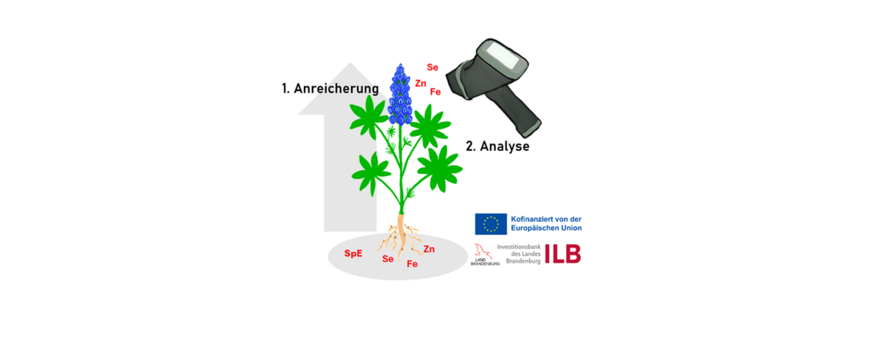LuPhytSpE
Phytomining-based production and LIBS-based monitoring of trace element (SpE)-enriched lupins - Innovative technologies to improve the quality of SpE- and protein-rich foods
The transdisciplinary joint project LuPhytSpE involves the enrichment and monitoring of trace elements (SpE) in sweet lupins. For this purpose, lupins are cultivated, fertilized in a targeted manner and brought to harvest. Monitoring is carried out using laser-induced breakdown spectroscopy (LIBS) - both on the plants themselves and on lupin flour, extracts, etc. LuPhytSpE implements laser-based sensor technology and biofortification techniques for the production of protein- and SpE-rich sweet lupins that can be used as food/feed. In this way, the project makes an important contribution to the further development and establishment of sweet lupin products as a promising protein and micronutrient-rich domestic grain legume and thus contributes to the implementation of the German government's protein and nutrition strategy and the European Commission's intended transformation of the food system. Important transfer targets are a mobile LIBS instrument and SpE-Lupine, which are developed and used as functional samples. The project is strongly anchored in innoBB 2025 and the Brandenburg science and transfer landscape - documented by seven letters of support from key players, among other things.
Project partner:
Chair of Knowledge and Technology Transfer, innoFSPEC-Transferlabor Prof. Dr. Hans-Hennig von Grünberg, Prof. Dr. Gerd Löhmannsröben, Dr. Toralf Beitz
Botanischer Garten, Dr. Michael Burkart
Projekt:
EFRE StaF-Verbund 86003909

